Latest Posts

A Quiet Exodus: Why More Americans Are Migrating to the UK
The United Kingdom is witnessing an unprecedented rise in immigration from the United States. In the twelve months leading to March 2025, more than 6,600 US citizens applied for UK residency or nationality. This is the highest figure since records began in 2004. Over 1,900 applications were lodged in the first quarter of this year alone, reflecting a twelve percent increase on the previous quarter.
Why are more Americans moving to the UK
This trend, while modest in absolute numbers, is gaining prominence due to the profile of those making the move. Immigration lawyers and policy commentators attribute the surge to growing political volatility in the US, particularly following the return of Donald Trump to office. Many applicants are affluent professionals, entrepreneurs, and families seeking long-term stability, access to education, or a more predictable political climate.
Some have been referred to as “Donald Dashers,” a term used to describe Americans relocating capital and assets to UK institutions in search of security. Others include LGBTQ+ individuals, dual nationals, and members of minority groups who are concerned about the evolving tone of US public discourse and policymaking.
UK Education as a positive driver
Education remains a key driver. Applications for UK study visas from US nationals rose by nearly ten percent in the first quarter of 2025, reinforcing Britain’s appeal as an academic and cultural hub. London in particular continues to attract US students and professionals looking for global opportunity.
The UK’s Immigration landscape
From a legal perspective, several viable routes remain open. The Skilled Worker visa, Global Talent route, and Family visa pathway continue to draw applicants from the US. Notably, recent reforms have expanded eligibility for those with UK-born grandparents. At the same time, proposals under the Labour government aim to tighten immigration generally, including increasing the residency requirement for settlement from five to ten years and raising English language thresholds.
Although net migration to the UK has fallen from a peak of 906,000 in 2023 to 431,000 in 2024, the demand from well-qualified US nationals is growing. Grants of UK citizenship rose to 269,000 in the past year, and employment-related settlements increased by over a third.
Final remarks
While political rhetoric in the UK continues to emphasise control and reduction of migration, the legal frameworks remain robust. For a particular class of American citizen, Britain continues to offer an attractive combination of legal certainty, global connectivity, and long-term security.
Read More
Understanding the UK’s Data (Use and Access) Act 2025
The UK’s data protection landscape is continuing to evolve. The Data (Use and Access) Bill (the “DUA Bill”) received Royal Assent last month and has been enacted as the Data (Use and Access) Act 2025 (the “DUA Act”). The DUA Act aims to complement existing UK data protection laws by enhancing transparency, promoting responsible data sharing, and reinforcing the protection of individual rights.
This article explores some of the key changes being introduced by the DUA Act and outlines practical steps organisations can take to prepare for the new legislation and ensure ongoing compliance.
AI and copyright
One of the most hotly contested issues that stalled the DUA Bill’s progress was around the treatment of artificial intelligence (“AI”). The emergence of AI models raised significant concerns, particularly around copyright materials being used by developers for training their Large Language Models.
The House of Lords pushed for amendments to the DUA Bill to include stricter provisions on the use of copyrighted content, advocating for mandatory transparency requirements. Some of the UK’s leading music artists, including Sir Elton John, Sir Paul McCartney and Dua Lipa, spoke out in support of these changes. (Dua Lipa’s high profile involvement even led to the legislation being jokingly referred to as the “DUA Lipa Bill”). These artists warned that, without such safeguards, tech companies could exploit intellectual property and be given free rein to use content without having to compensate the creators.
However, the House of Lords’ efforts were unsuccessful. The Government ultimately resisted the proposed changes, arguing that the DUA Act was not the appropriate legislative vehicle to address such complex and evolving issues. Eventually a compromise was reached and a government report on AI and copyright is due to be published later this year, which will explore possible changes and enforcement measures.
What does the DUA Act do?
The DUA Act establishes a more robust legal framework for data access and sharing. It updates and reforms existing UK data provisions and e-privacy laws and includes broader data policy initiatives aimed to encourage use of data in the public interest, while maintaining safeguards for individual rights to privacy.
Key changes include:
- Establishing new “Smart Data Schemes” to enable access to customer and business data. These schemes are government-backed frameworks designed to give consumers and businesses more control over their data, allowing them to share information, such as order histories and service logs, with authorised third parties who can use it to provide improved services to the customer. This aims to make data more portable and promote competition. The government will designate specific sectors for Smart Data Schemes, such as finance and energy, where consumers often lack easy comparison tools and face high switching costs, but strict security and data protection standards will apply.
- Introducing a new structured system for digital verification services by using trusted providers, enhancing reliability and trust in digital ID systems.
- Replacing the former EU-style adequacy framework for international data transfers with a new test. Transfers will be permitted where the receiving country offers protections that are not materially lower than UK standards.
- Making various amendments to existing UK data legislation, such as:
- to introduce a new lawful basis for processing of “recognised legitimate interest”, including for national security and emergency response;
- to allow charities to take advantage of the “soft opt in” when sending marketing emails, thus bringing them more in line with the how businesses can operate;
- to relax the requirement for establishing a lawful basis before conducting automated decision-making where special category data is not involved;
- to clarify the “reasonable and proportionate” standard for responding to data subject access requests (“DSARs”), offering more proportionality and greater flexibility to organisations managing complex / repetitive requests;
- to permit the use of low-risk cookies (e.g., for site performance or analytics), without the requirement for explicit consent, provided users are informed and can still opt-out; and
- to reform the ICO and replace it with the “Information Commission” – intended to give it a more modern structure as a full corporation and bring it in line with other UK regulators like OFCOM and the FCA.
How can organisations prepare?
While some critics argue the DUA Act simply reinforces and codifies existing legislation, the cumulative effect of the changes could be significant from a compliance and operational perspective.
The new Information Commission will be issuing guidance on the DUA Act, but this is not scheduled to be coming out any time soon and may not be until next year. As we await further details and secondary legislation, organisations should take this opportunity to proactively review and assess their existing documentation and policies to ensure a smooth transition.
Recommended steps include:
- Reviewing existing data policies including privacy policies and data protection impact assessments to assess its compliance with the new transparency and accountability requirements and the recognised legitimate interests provision;
- Considering the Act’s clearer reasonable and proportionate test to data subject access request processes and thinking about setting internal policies on what constitutes a reasonable / proportionate search;
- Assessing whether use of cookies will qualify for the new consent exemptions and considering a review of cookie banners and privacy notices accordingly, ensuring opt-out choices remain;
- Considering the appointment of a data protection officer (“DPO”) or compliance lead if not already in place to oversee regulatory compliance, particularly for businesses that operate across multiple jurisdictions; and
- Remembering that this is a change to UK legislation only. Where organisations must comply with other legislation from other jurisdictions, especially GDPR for Europe related activities, these regulations will still remain. Global organisations should consider how best to manage the different approaches when dealing with the UK and Europe.
Final thoughts
The DUA Act is part of a broader trend towards a more flexible and accountability-driven approach to how data is being governed in the UK. While some key aspects, such as AI and copyright, are subject to secondary legislation and further guidance to be published, the direction the Government is taking towards modernisation is clear.
Organisations that begin reviewing and assessing their processes and provisions now, will be better placed to ensure legal compliance and avoid regulatory risk in the future.
Our experienced Data Protection and & Privacy team is available to provide further advice or answer any questions you may have about the DUA Act. Please do not hesitate to get in touch.
Read More
Quastels SRA Diversity Questionnaire 2025
Results for Quastels: Staff SRA Diversity Questionnaire 2025
89% of our staff completed the 2025 Solicitors Regulation Authority (SRA) Diversity questionnaire.
Response to the survey by individuals is encouraged yet voluntary. Staff also have the option to complete the survey whilst choosing not to respond to one or more of the questions.
Where the following data refers to ‘staff’, ‘all staff’ or ‘total staff’ this should be read as ‘all staff who responded to the survey and the question’.
Of those staff who completed the questionnaire, see the results below.
Role Categories
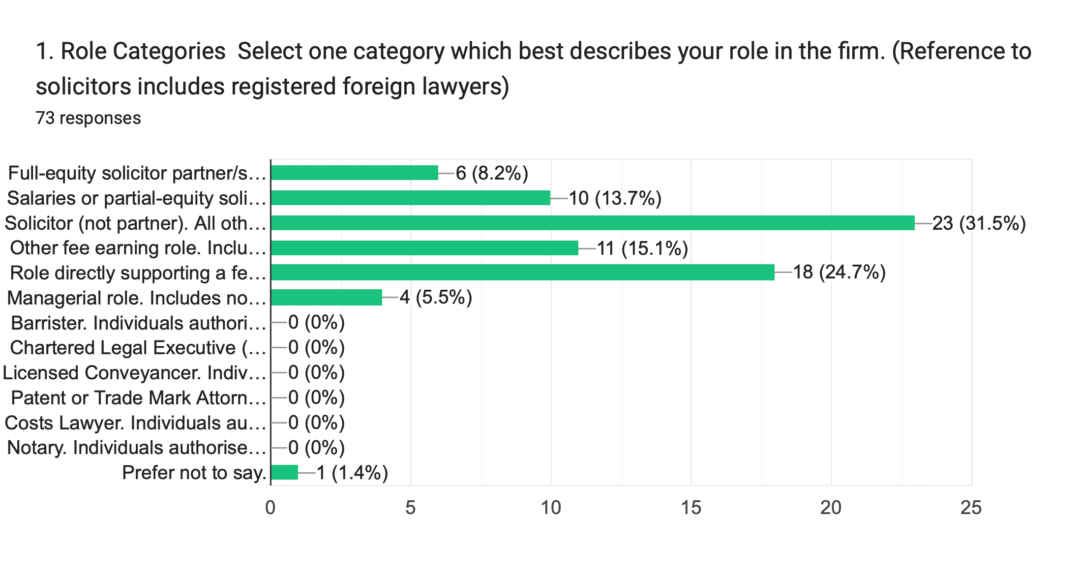
Age Categories of Quastels Staff
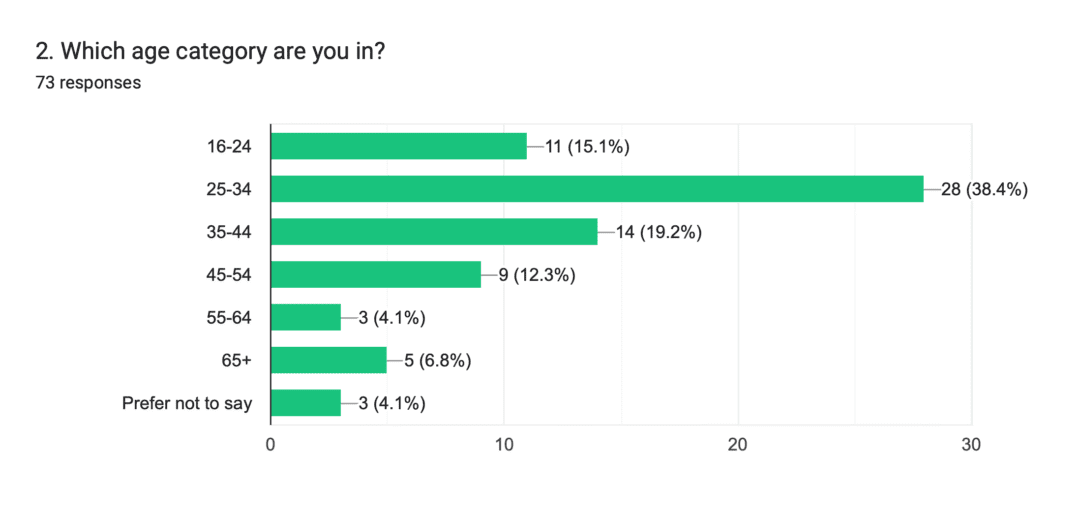
Sex of Quastels Staff
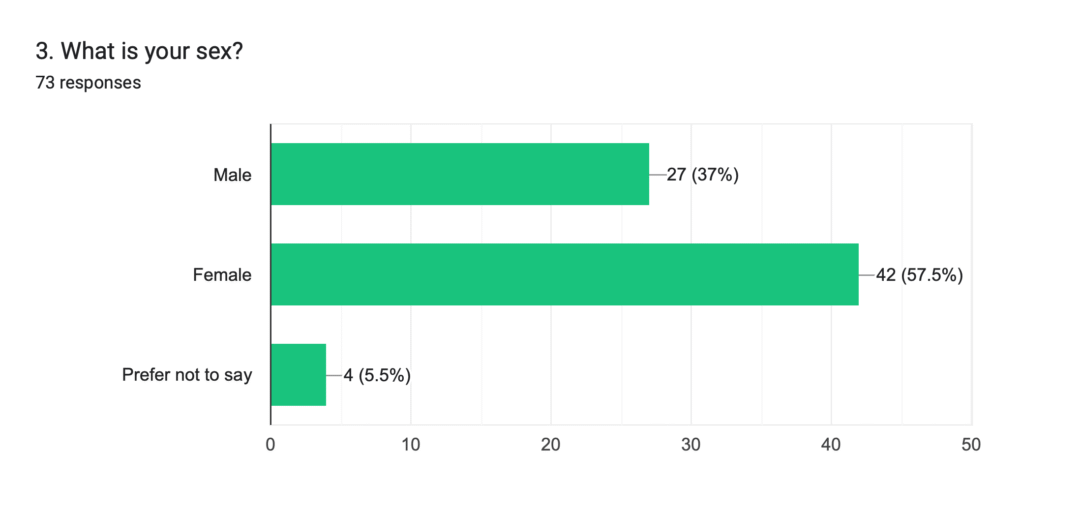
Do The Employees At Quastels Identify With The Same Gender They Were Assigned At Birth?
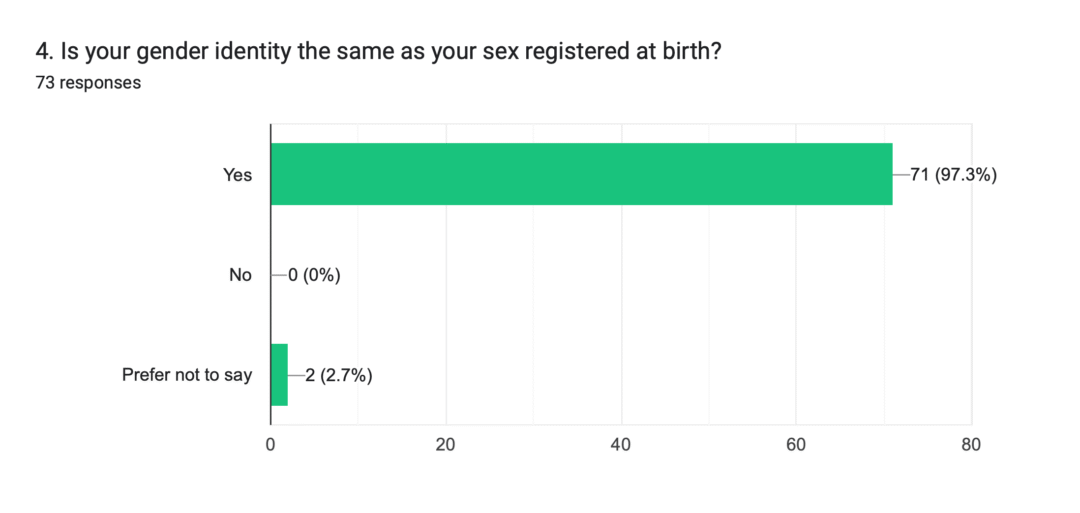
The Equality Act
The Equality Act defines a disabled person as someone who has a mental or physical impairment that has a substantial and long-term adverse effect on the person’s ability to carry out normal day-to-day activities.
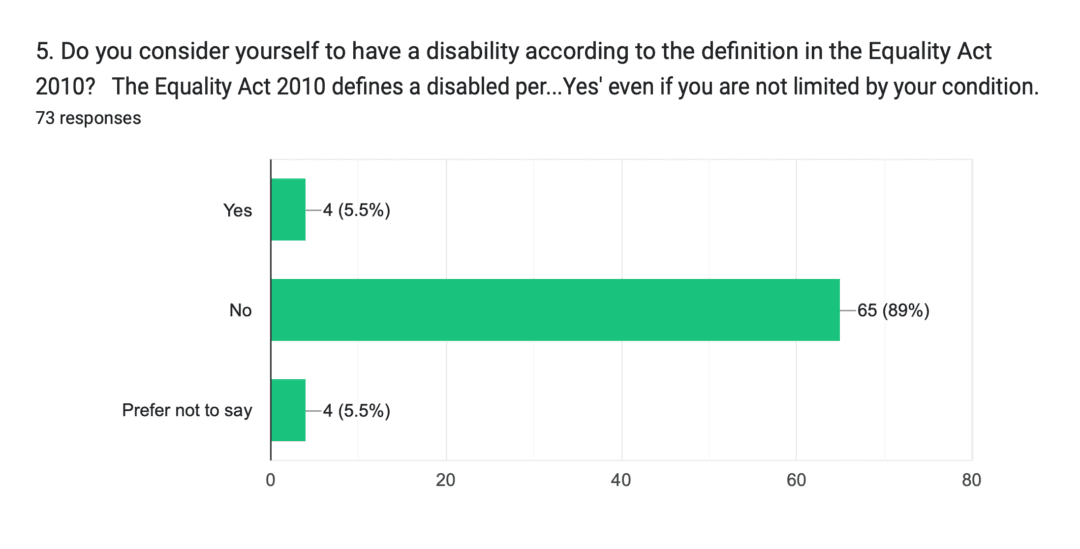
Do Quastels Staff Have Problems Or A Disability Impacting Their Day-To-Day Activities?
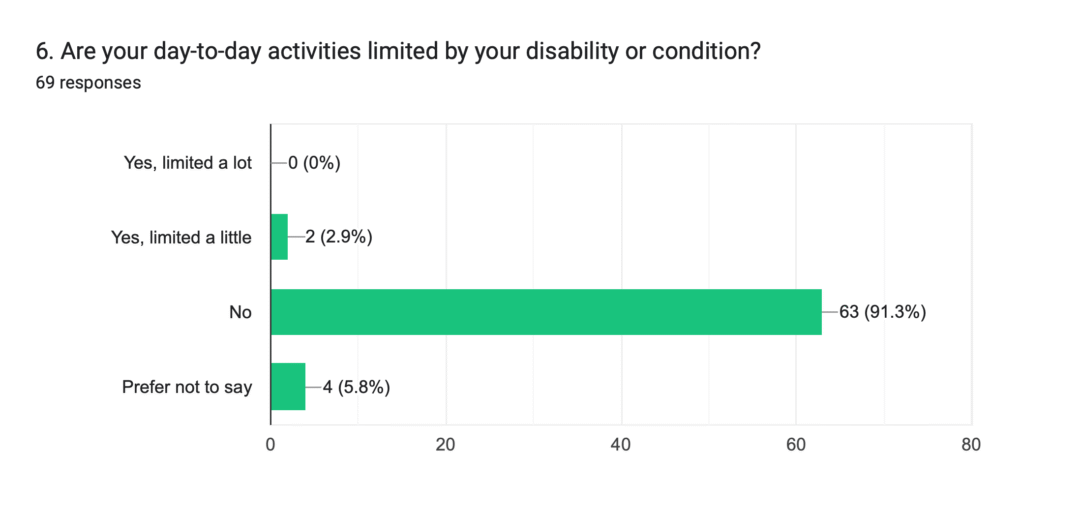
Ethnicities Of Quastels Staff
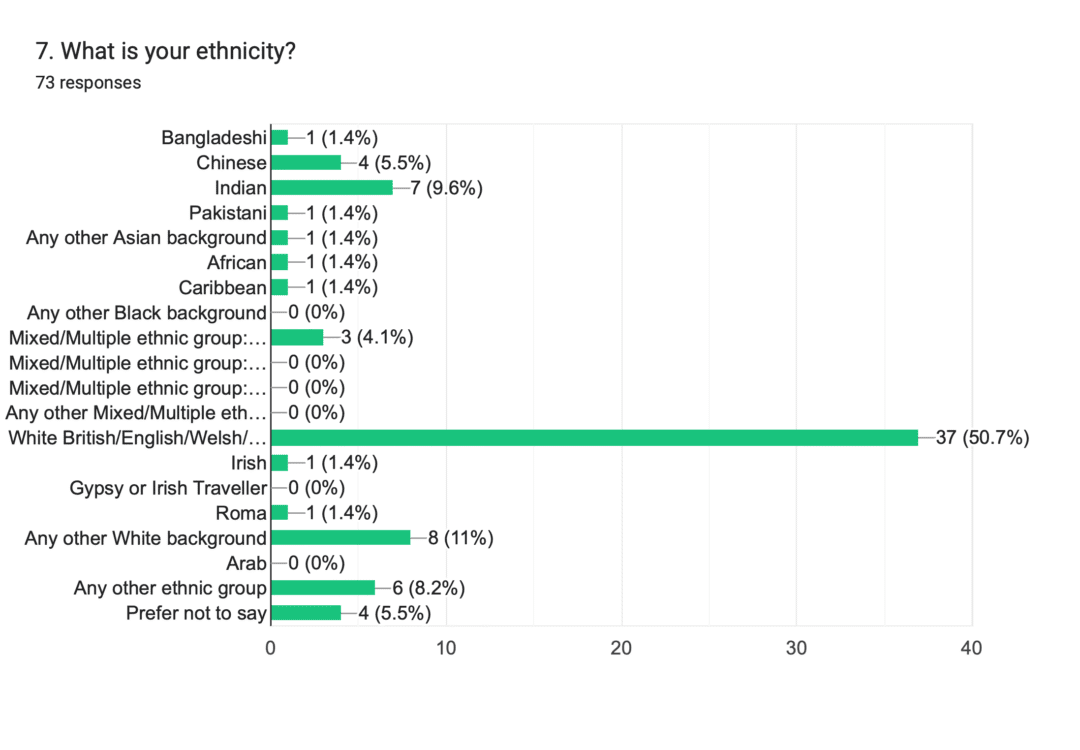
What Are The Religious Beliefs Of Quastels Staff?
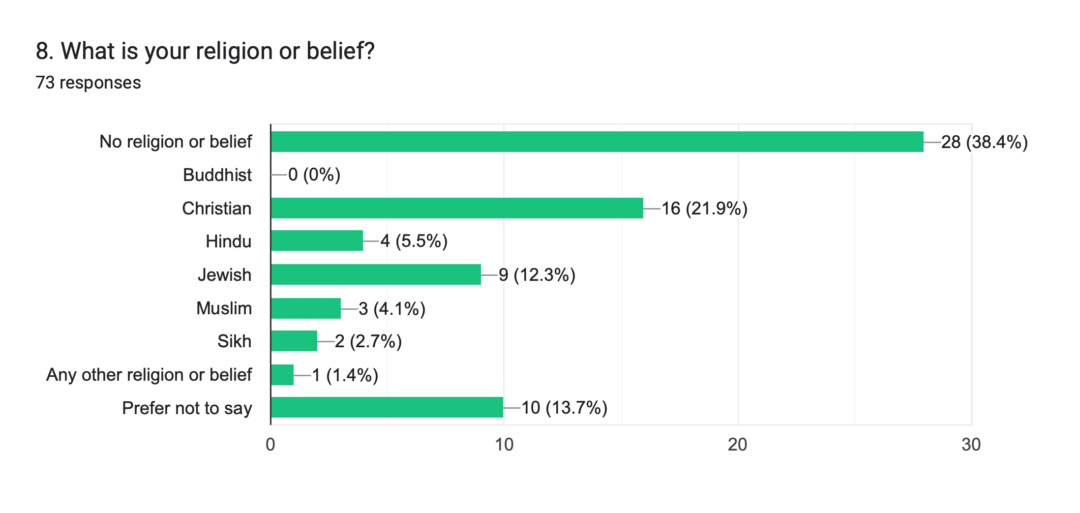
Sexual Orientation of Quastels Staff
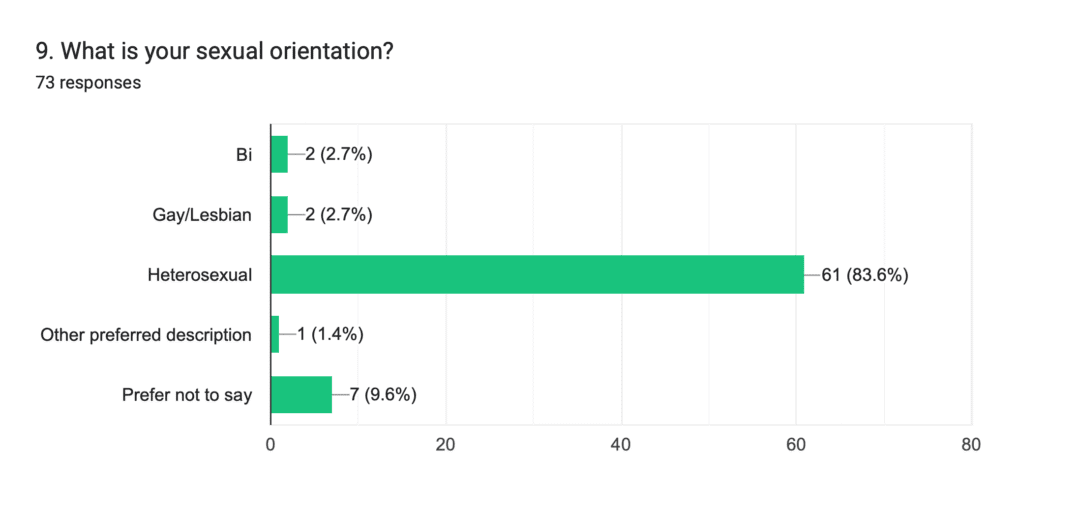
What was the occupation of the main household earner when a Quastels employee was aged about 14?
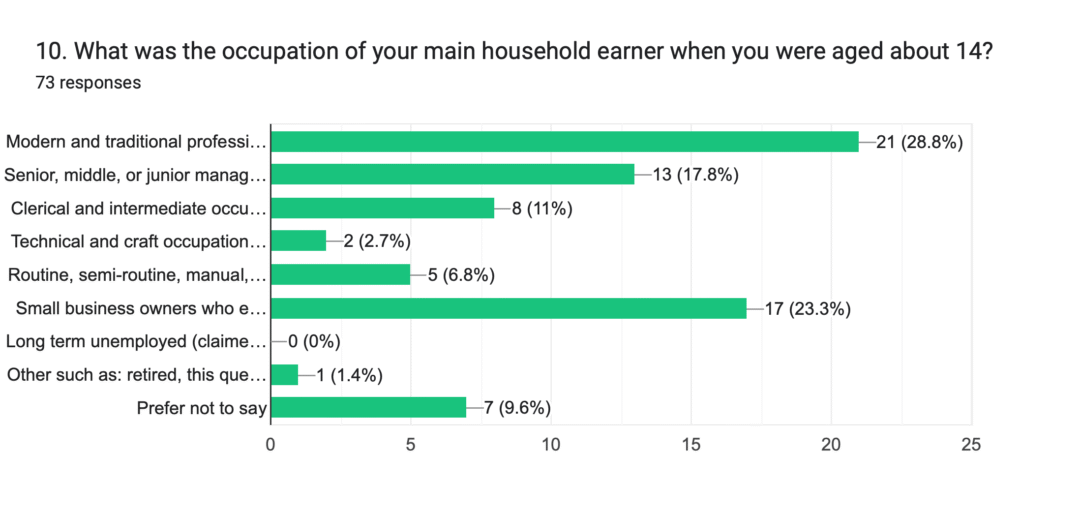
Which type of school did Quastels staff attend for the most time between the ages of 11 and 16?
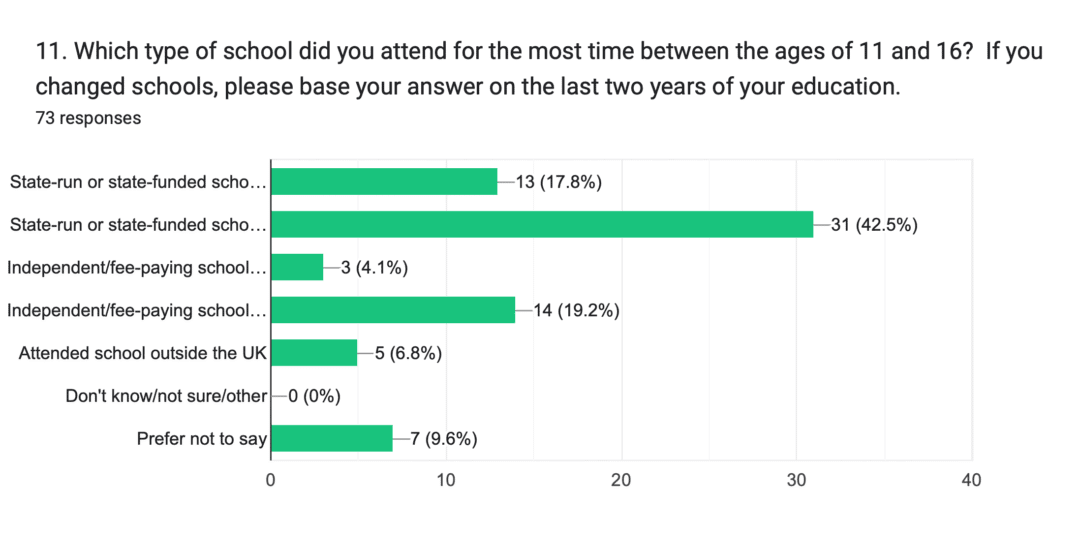
Did either parent of Quastels employees attend university and gain a degree (eg BA/BSc or equivalent) by the time they were 18?
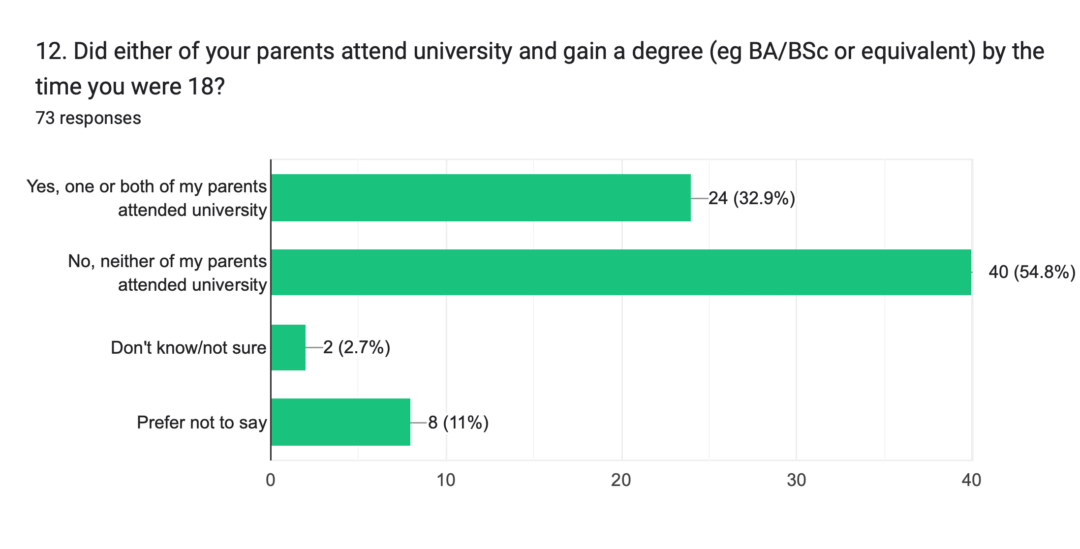
Are Quastels staff primary carers for a child or children under 18?
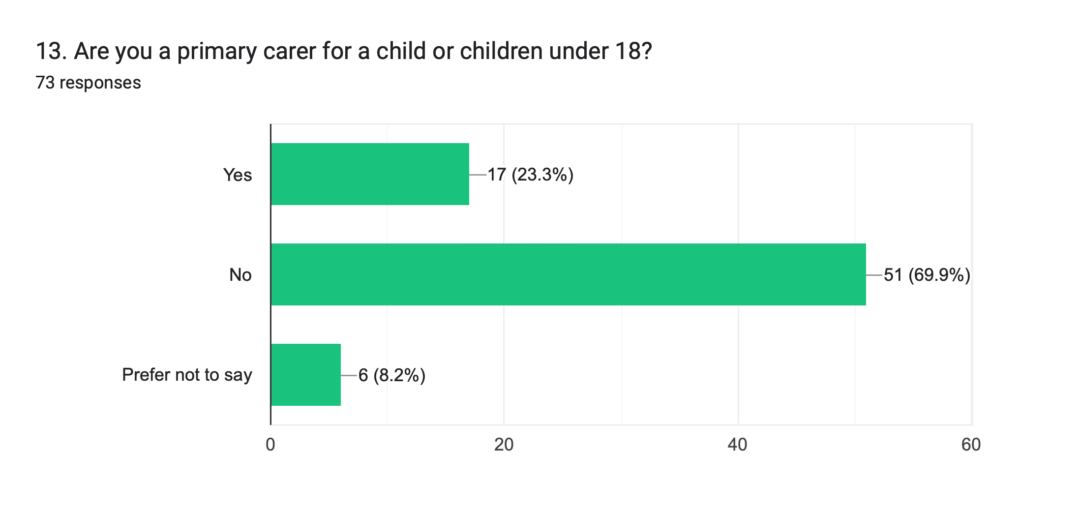
Do Quastels employees look after or care for someone 18 or over with long term physical or mental ill health caused by disability or age (not in a paid capacity)?
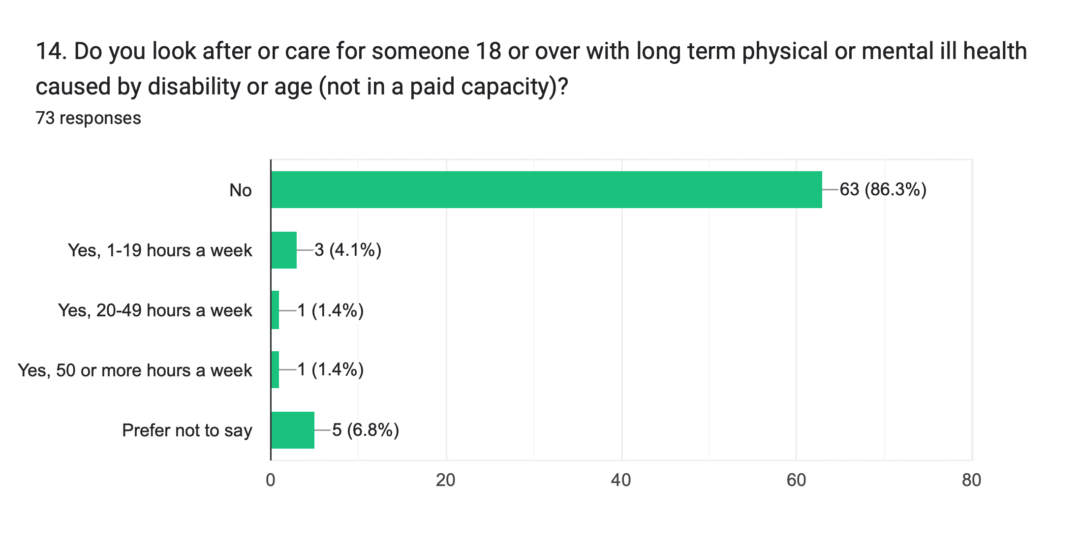
Find out more about Quastels’ core values and our Social Impact Programme for 2025.
Read More